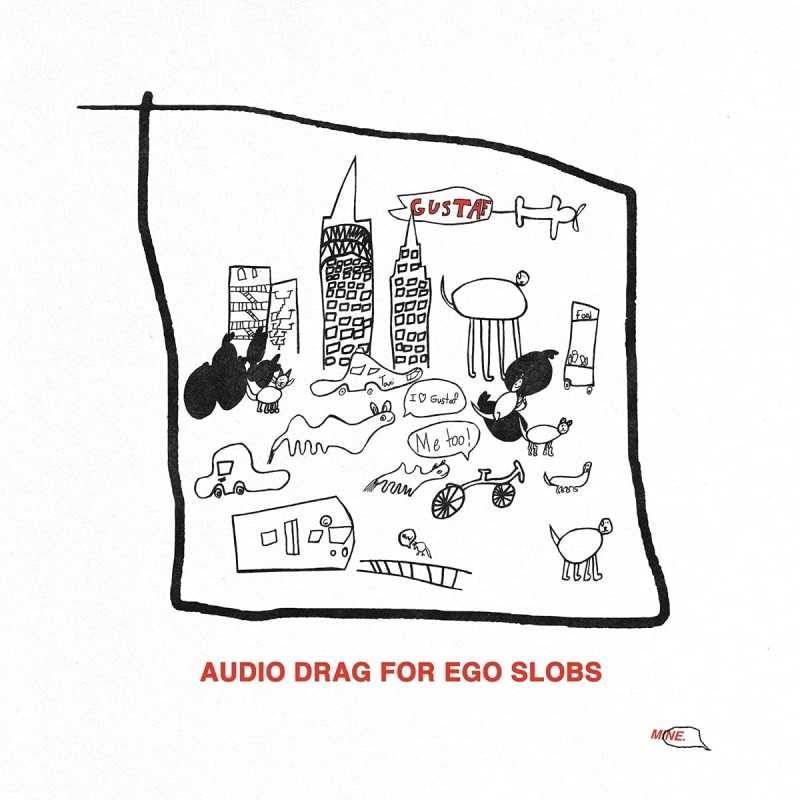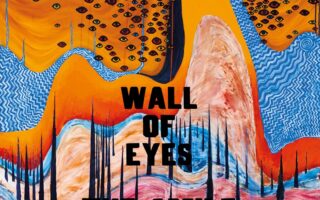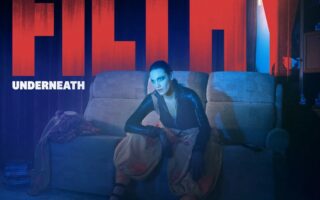 Despite the seemingly endless conveyor belt of bands crammed together under the title of post-punk, the world’s hottest of beds for new music (New York) has been noticeably resistant to the phrase (with a few exceptions, such as Bodega).
Despite the seemingly endless conveyor belt of bands crammed together under the title of post-punk, the world’s hottest of beds for new music (New York) has been noticeably resistant to the phrase (with a few exceptions, such as Bodega).
Regardless, the City That Never Sleeps has firmly and comprehensively joined the party now. Gustaf, comprised of Tine Hill (bass), Vram Kherlopian (guitar), Melissa Lucciola (drums), Tarra Thiessen (vocals, percussion) and Lydia Gammill (lead vocals) are, having built -p a head of steam in the live arena since their formation at SXSW in 2018, here to rattle bones and shake souls.
But the question lingers; in an already crowded field, can they differentiate themselves to stand apart? Based on the contents of this (finely-named, it has to be said) album, the answer is: not yet.
There is much within the album to enjoy; dance-ably fluid but rhythmically tight, its deftness of touch is its saviour. Unfortunately, even on an album so slight as this (clocking in at 32 minutes), their strengths also reveal themselves as their weaknesses.
Apparently inspired by the grooves of ESG, the bass carries the album. It’s front and centre throughout, more often than not the first instrument we hear on a track, normally forming a loop which the rest of the song builds itself upon. Sometimes it’s chunky, as on Best Behaviour, sometimes it’s wobbly (Book) but it’s always front and centre. However, as we know, the bass only has four strings so its limitations are quickly laid bare.
Not to say that’s all Gustaf can do. On a number of tracks the lead guitar is affected to sound like an alarm; Dream’s is of the fire variety, while Mine carries one in the style of burglar. Ideal to get you up in the mornings.
Similarly, a swampy, distorted, almost comedic voice pops up at several stages throughout; on Best Behaviour it repeats the chorus line throughout the track, while on Happy it’s also omnipresent but distracts from the song’s thoughtful, pensive vibe.
Lastly, in an attempt to freshen things up, the lesser-spotted flute pops up not once, but twice; on Liquid Frown it delivers a deftness to their by-now familiar staples, but once it returns on Happy the novelty has dissipated.
A paucity of ideas doesn’t define a lack of quality, even if it does become wearing. Fortunately, the songs within are greater than the sum of their parts.
Dog is wonderfully moody, the bassline working well with a slicing riff to foster a feeling of disharmony. Gammill is channeling her inner Iggy, although it may be down to the repetition of the word ‘dog’ (as in I Wanna Be Your…) that triggers the image.
Elsewhere, Book is full of energy and gloriously chaotic ramblings, all brought to life by Gammill’s laconic and pensive lyrics. The opening line of the album, ‘You say I’m much too old to be lo-fi’, hints at a self-awareness that will undoubtedly be a useful weapon in their armoury. Later on in the same track, the singer garbles, ‘I don’t wanna ruh ruh, I don’t come to repeat, get ready cause I won’t ruh ruh…blearghh’. Written down, it doesn’t look particularly impressive, but Gammill’s delivery makes it so.
With patronage from Beck and Cage The Elephant among others, Gustaf have built a solid if unspectacular foundation which will stand them in good stead. Perhaps more art-punk than post-punk, with a few more ideas they should have enough to set themselves apart from their peers.




